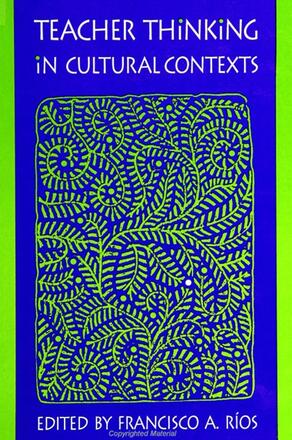
Teacher Thinking in Cultural Contexts
Alternative formats available from:
Explores how teachers think about students of color and/or a multicultural curriculum and presents opportunities for reconstructing teacher knowledge of the cultural context.
Description
Francisco Rios' book sheds light on current scholarship around teacher thinking in cultural contexts and identifies promising practices that take into account context specific influences. He provides a theoretical and conceptual framework for understanding why teacher cognition as a context specific phenomenon is important, how it is studied, what can be learned, and how these learnings inform the preparation of culturally responsive educators. The contributors look at how teachers think about students of color and/or a multicultural curriculum and explore opportunities for reconstructing teacher knowledge of the cultural context.
Rather than focusing on ways in which the students are "deficient," or on the behavioral elements of effective teaching, this book starts with the how and what of teacher thinking as a central element in the teaching-learning relationship. It places the teacher at the center of instructional activity. While teacher thought influences what happens in instructional settings, teacher thought is also influenced by the people and activity critical to those settings.
Francisco A. Rios is Assistant Professor in the College of Education at California State University-San Marcos.
Reviews
"This is an important aspect to an important field of study: teacher thinking, multiculturalism, and classroom practice. The book points to the need of synchronization between the school culture and the students' culture. The acknowledgment of social context within teacher thinking research and the resulting discussions of how teachers' perspectives impact behavior is an important step in understanding race, gender, class, and ability in classroom teaching and learning. " -- Mari E. Koerner, Roosevelt University